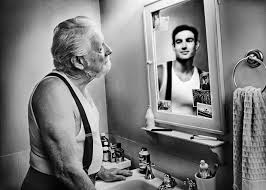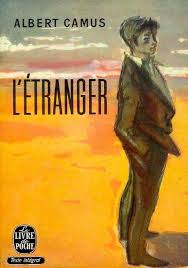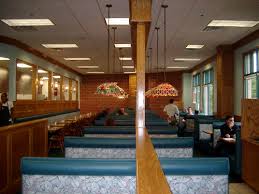It has been said that each of us has a ghostly double somewhere in the world, especially one that haunts its own fleshly counterpart. The Germans coined the term “doppelganger” for that supposed duplicate, but the word has provided me with a springboard for thought in terms of a different look at my own double.
I’m not sure about the truth of my having a doppelganger, but this morning I imagined what it might be like to travel back to the year I turned twenty, not to BE twenty again but rather to observe and then to communicate with that other self by being his social, intellectual, and spiritual mentor, even if just for part of an afternoon. Nor am I certain if such a meeting would be for him more than for myself. Without attempting to explain the efficacy or even possibility of time travel, I’m going back to a February day on campus at Ball State University in 1966, when I was about to turn twenty.
I watch my younger self going to classes, doodling during some of the interminable lectures, ditching tennis, because our coach made us wear summer gear, even when it snowed. I see that younger self walking across campus to meet Eric, Larry, Debbie, and Grace for lunch at The Pancake House on University Avenue, where music by the Beatles, the Beach Boys, and Peter, Paul, and Mary seems always to be playing over the chatter of college kids and the occasional professors. After lunch the others leave to attend afternoon classes, as the young John remains in the booth reading a paperback copy of L’Etranger (The Stranger) by Albert Camus. After a waitress clears the table of everything but the mug of coffee over which John has been lingering, I slip into the seat across from him, excusing my arrival by saying that I know his parents and grandparents well.
I doubt that he would be overly startled by my appearance, my silver hair and facial lines helping to mask the identity of his other self, fifty years from the future. I might refer to the book he had and discuss it briefly with him, but more importantly I would ask how he was doing and what mattered most to him. I would want him somehow to know that despite what often seemed like insurmountable odds, not achieving every goal, losing loved ones, feeling at times terribly alone as the years went spinning by….that everything would be all right, that life’s loving gifts would be there when he needed them most, and that being crushed by discouragement served no purpose. I might name some of the books that he would love during the coming years and remind him that people were the most essential parts of one’s happiness and that they should be cherished above all else.
No, he wouldn’t “freak out.” I know him too well for that. This young, innocent fellow is, after all, my other self. His curiosity and desire to understand have always been intact, and as I get up and shake hands, wishing him all the best, he asks whom he should tell his parents he met today. I answer, “Just tell them another John Bolinger sends his love and best wishes.” Though obviously puzzled, he smiles back and continues reading the Camus novel as I go to the exit, looking back once more at my younger self as he sits in the red booth, his portal for the journey through the next half century.
If you, the reader, could meet and speak with your younger self from decades ago, what would you say to him or her? Would you preach, rhapsodize, instruct, warn, or simply gaze, awe-stuck by the knowledge, wonder, terror and unspeakable beauty that lie ahead for that very special younger version of yourself? JB





